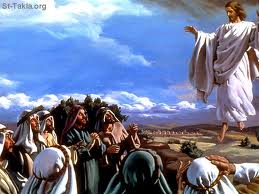(here’s a helpful post by Larry Hurtado on the Ascension).
Jesus’ “Ascension”
by larry hurtado
Well, another dreadful “thought for today” on Radio 4 this a.m., this one ostensibly taking as its pre-text (and I use the word advisedly) that today is Ascension Day, and opining that Jesus’ Ascension (portrayed solely in Luke-Acts in the NT) means that Jesus has deaked out and we’re on our own! So, children, the moral lesson is that we should just face up to it and learn to cope. Hmm. Well, just goes to show you what the exegetical equivalent of a drive-by-shooting can produce!
For seriously interested people, I’ll recommend a fine study by Arie Zwiep: The Ascension of the Messiah in Lukan Christology, NovTSup, no. 87 (Leiden: Brill, 1997). Zwiep reviews prior scholarly work and offers his own intelligent and careful engagement with the textual data.
He notes that in Luke-Acts the author seems to distinguish between Jesus’ resurrection/exaltation on the one hand and the ascension on the other. He also rightly observes that the likely background for the idea of ascension is in OT/Jewish ideas of biblical figures being taken up into heaven (e.g., Elijah). Zwiep proposes that the point of the ascension-story in Luke-Acts was to encourage readers to cope with parousia delay by thinking in terms of a Jesus returning at an undefined future time.
Clearly, Luke-Acts does not portray an inactive Jesus, who has abandoned his disciples to their own devices. The exalted Jesus is pictured as dispensing Holy Spirit, directing apostles, revealing himself (esp. to Saul/Paul), etc. But, certainly, in Luke-Acts “the ascension marks the transition from the period of Jesus to the period of the church” (196). But it is also connected with the emphasis on Jesus’ return (Greek: “parousia”), framing the period between Jesus’ exaltation and that event.













